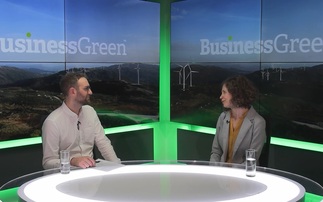How is the fossil fuel industry responding to growing pressure to address future emissions in the run-up to the Paris summit?
What will Paris deliver?
It seems the knives are out in the run-up to Paris as each part of the fossil fuel industry strives to protect its own interest. But how might a deal play out in December?
The key difference between Paris and the Copenhagen Summit that failed to deliver a hoped-for international climate treaty back in 2009 is found in the proposed structure of the agreement. The problem with Copenhagen was that it was too ambitious, Hobley says, it tried to deliver a binding treaty that attempted to guarantee steep emissions reductions. In contrast, success in Paris may not necessarily mean delivering a deal that immediately puts the world on a pathway to 2C. The hosts' more modest aim is to get an international framework in place that will allow for governments to ratchet up emissions reduction ambition as political will intensifies, Hobley says. Within this structure, the influential INDCs currently being put forward by individual nations are only a starting point for future emission reduction efforts and clean technology investment programmes.
Consequently, any agreement would represent the latest step in a steady increase in pressure on fossil fuel companies to change their business models, pressure that would almost certainly intensify in the wake of a new treaty being finalised.
The oil companies certainly aren't expecting a 2C deal from Paris. At the Opec seminar last month delegates were asked to raise their hand if they thought COP21 would deliver a binding agreement to limit global warming to below 2C. According to reports, not one person raised their hand.
But that does not mean the industry is off the hook. Far from it. Hobley argues Paris may not be about securing a 2C future, but it is about giving governments, businesses and the public a clear sense of direction about the future of decarbonisation efforts. He believes that once the INDC framework is in place, it will trigger a "slippery slope" towards ever stronger emissions cuts.
Although some fossil fuel firms - most notably Exxon Mobil - are largely refusing to engage with the low-carbon agenda, for many within the industry the response to climate change has simply become a question about how soon things will change. Most are planning for decarbonisation over the next century, which would give them time to diversify into cleaner fuels such as natural gas, CCS, and renewables.
For example, French firm Total is already on its way to diversifying its business, shifting from oil to gas and renewables in a bid to protect its future business model. "We are more and more becoming a gas producer, and we see it as key to addressing climate change," said a spokesperson for the company. The firm has also invested heavily in solar power, taking a stake in SunPower in 2011. It claims it is "well positioned" for a future as an "oil, gas and solar company".
However, others are not embracing change so willingly. Saudi Arabia may have announced plans to step up investment in renewables but it has also led calls from Gulf States for compensation for oil producing nations forced to transform their economies and forego anticipated export revenues from oil. Many of the world's largest fossil fuel companies such as Exxon Mobil and coal giant Peabody Energy, have repeatedly argued that there is a compelling economic case for a continued increase in fossil fuel production.
However, Hobley argues a faster pace of change would actually be better for the fossil fuel industry, because it means a smoother transition to a low-carbon economy - a point E3G's Gallagher agrees with. "If the fossil fuel companies are thinking long-term, and thinking about the best ways of exiting their reliance upon fossil fuels, then they would be arguing for a stronger agreement in Paris," she says.
"There should be time for most people to transition without any major stranded assets or financial dislocation," Hobley adds. "Of course, there will be winners and losers, but they will do it within the [current financial] system."
The nature of the long-running UN climate talks and the focus on delivering a flexible new international accord means it is difficult to predict what is going to happen next. A strong deal could pose a serious threat to the long-term viability of parts of the fossil fuel industry, but even a weak deal could still lay the foundations for a stricter agreement a few years down the line. Some fossil fuel companies may continue to resist the climate policies unleashed by the INDCs and look to step up investment and production; others may look to accelerate their own transition towards lower carbon business models.
But whatever happens in Paris, the summit is not the only factor that will determine the future of fossil fuels. Paris is just one part of a "perfect storm" for the industry, Hobley warns. HSBC agrees, highlighting advances in renewables, battery storage and enhanced oil recovery as just some of the game-changing trends that will alter the world's energy mix in the coming decades.
In short, the future looks bleak for coal, while oil and gas companies are facing a race against time to pivot their business away from all but the cleanest fossil fuels. The trouble is, no one quite knows how long the race is and how long they have to complete it. Business leaders and investors will be hoping Paris gives them a better sense of how fast they should be running.
This article is part of BusinessGreen's Road to Paris hub, hosted in association with PwC.









